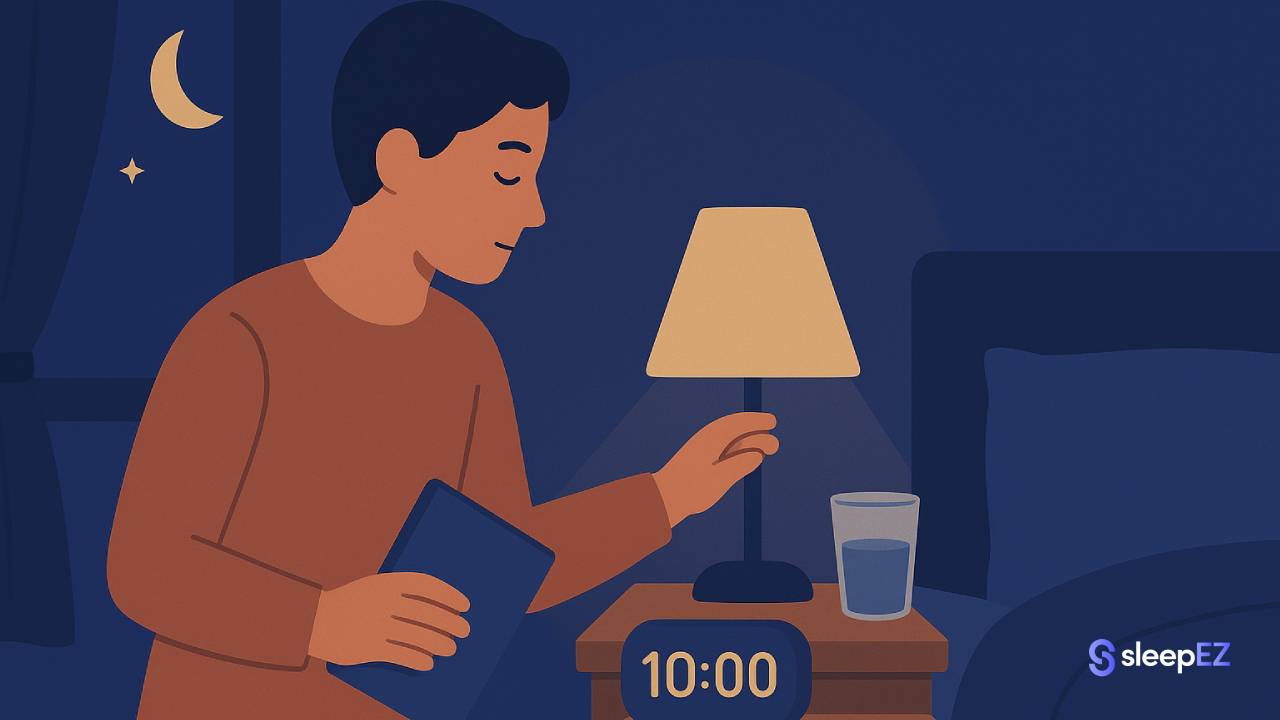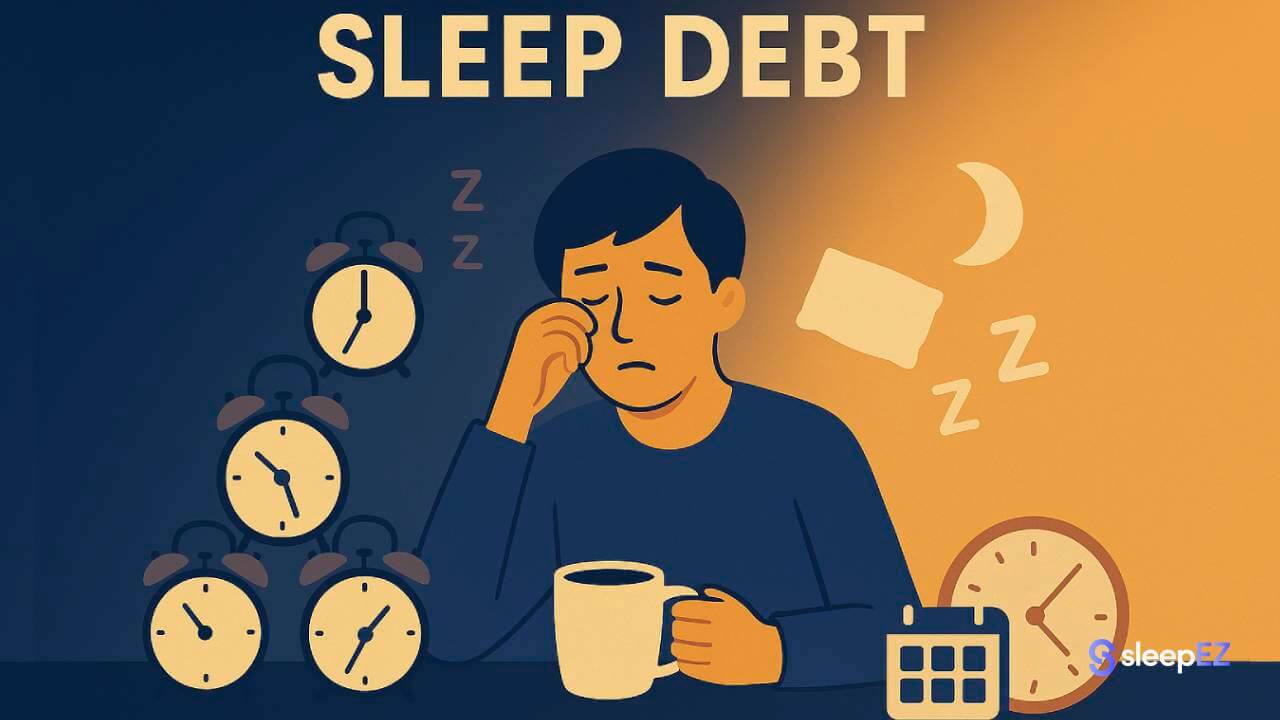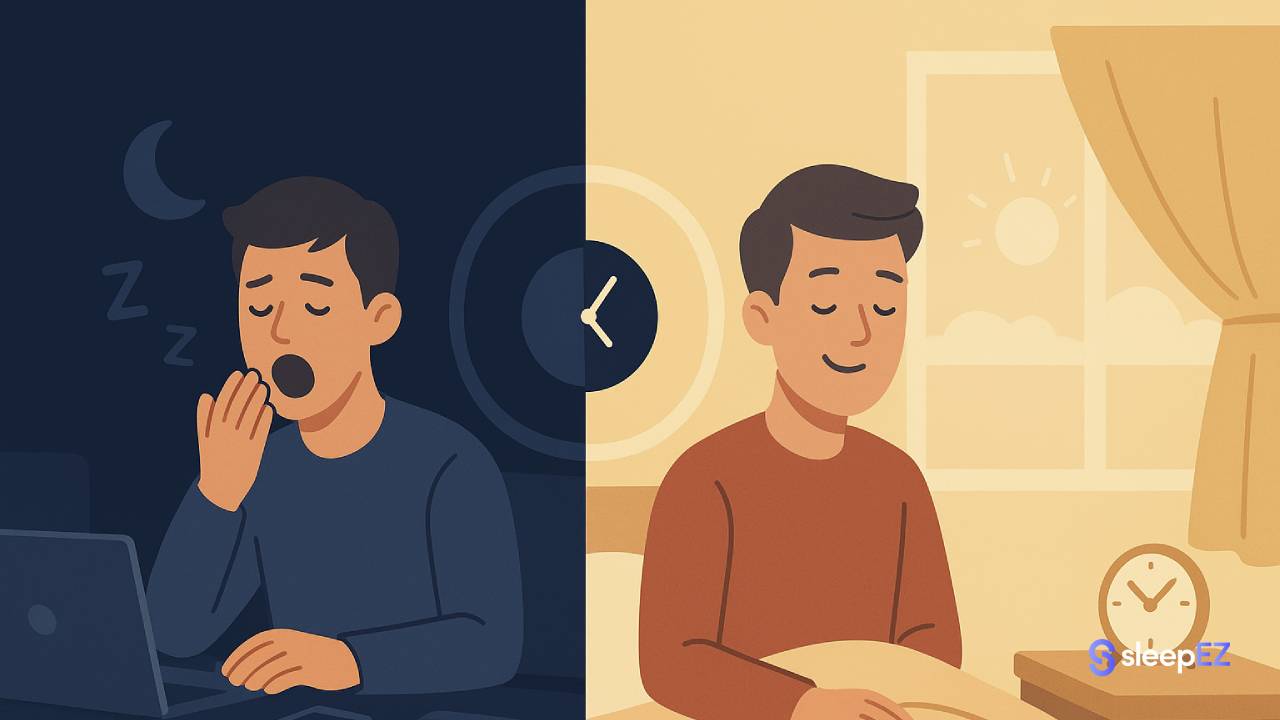What Is Sleep Hygiene? A Practical Guide to Better Sleep
Tired of feeling tired? You're not alone. Millions of people struggle to fall asleep, stay asleep, or wake up feeling rested.
Sleep hygiene is a set of behavioral and environmental practices designed to promote better sleep on a consistent basis. Think of it as daily habits that help your body and brain prepare for quality rest.
As Dr. Matthew Walker, sleep researcher and author of "Why We Sleep," puts it: "Sleep is the single most effective thing we can do to reset our brain and body health each day."
This guide will explain what sleep hygiene is, why it matters, and give you 12 actionable tips you can start using tonight.
What Is Sleep Hygiene?
Sleep hygiene isn't a single trick or technique. It's a collection of habits that work together to improve your sleep quality.
These habits fall into three main categories:
- Your daily routine and schedule
- Your bedroom environment
- Your behaviors around food, exercise, and technology
Good sleep hygiene creates the right conditions for your body's natural sleep-wake cycle to function properly.
Why Is Good Sleep Hygiene Important? (The Benefits)
When you practice good sleep hygiene, you'll notice real improvements:
- Fall asleep faster - Less time lying awake staring at the ceiling
- Wake up less during the night - Fewer interruptions mean deeper, more restorative sleep
- Better mood and focus - You'll feel sharper and more emotionally balanced during the day
- Improved physical health - Quality sleep supports your immune system, metabolism, and overall wellbeing
Signs of Poor Sleep Hygiene
Watch for these warning signs:
- Constant daytime sleepiness or fatigue
- Irritability and mood swings
- Difficulty concentrating or remembering things
- Taking more than 30 minutes to fall asleep regularly
- Waking up multiple times each night
"Humans are not sleeping the way nature intended. The number of sleep bouts, the duration of sleep, and when sleep occurs has all been comprehensively distorted by modernity."
— Dr. Matthew Walker, Sleep Researcher and Author of "Why We Sleep"
12 Sleep Hygiene Tips to Improve Your Sleep Tonight
Now let's get practical. The following tips are organized into five categories that cover different aspects of your sleep routine. You don't need to tackle all of them at once. Pick the ones that address your biggest sleep challenges first, and build from there.
1. Build a Consistent Sleep Schedule
Tip 1: Go to bed and wake up at the same time every day
Yes, even on weekends. Your body has an internal clock called your circadian rhythm. Keeping a consistent schedule helps this clock stay regulated. When you sleep in on Saturday or stay up late on Friday, you throw off this natural timing.
Tip 2: Create a relaxing wind-down routine
Spend 30 to 60 minutes before bed doing calming activities. Read a book, do gentle stretching, listen to calming music, or practice light meditation. This signals to your brain that it's time to shift into sleep mode.
2. Optimize Your Bedroom Environment
Tip 3: Keep it dark
Darkness triggers your brain to produce melatonin, the hormone that makes you sleepy. Use blackout curtains to block outside light. A comfortable sleep mask works well too. A bluetooth sleep mask serves a dual purpose: it blocks 100% of light while letting you listen to relaxing audio as part of your wind-down routine.
Tip 4: Keep it quiet
Unwanted noise disrupts sleep, even if you don't fully wake up. If you live near traffic, loud neighbors, or other disturbances, try silicone earplugs to block out the noise. They're comfortable and effective. If you prefer some sound, a sound machine for adults can mask disruptive noises with consistent, soothing sounds like white noise or rain.
Tip 5: Keep it cool
Most sleep experts recommend a room temperature between 60-67°F (15-19°C). Your body temperature naturally drops when you sleep. A cooler room supports this process.
3. Manage Light Exposure
Tip 6: Avoid blue light from screens before bed
Phones, tablets, TVs, and computers emit blue light that tricks your brain into thinking it's daytime. This suppresses melatonin production. Stop using screens at least one hour before bed. If you must use them, enable night mode or wear blue light blocking glasses.
Tip 7: Get bright, natural sunlight in the morning
Morning light exposure helps regulate your circadian rhythm. It tells your body, "This is when we're awake." Try to get outside within an hour of waking up. Even 15-20 minutes helps. If natural light is limited where you live, consider a light therapy lamp.
4. Watch What You Eat and Drink
Tip 8: Avoid caffeine in the afternoon and evening
Caffeine stays in your system for 6-8 hours. That afternoon coffee at 3 PM is still affecting you at bedtime. Cut off caffeine intake by early afternoon. Remember that tea, chocolate, and some sodas also contain caffeine.
Tip 9: Limit alcohol, especially close to bedtime
While alcohol might make you feel drowsy initially, it disrupts your sleep cycle later in the night. You'll wake up more frequently and get less deep, restorative sleep. If you drink, finish at least 3-4 hours before bed.
Tip 10: Avoid large, heavy meals before bed
Eating a big meal close to bedtime makes your body work on digestion when it should be winding down. This can cause discomfort and disrupt sleep. Finish dinner 2-3 hours before bed. If you're hungry later, have a light snack like a banana or handful of nuts.
5. Be Mindful of Your Daily Habits
Tip 11: Get regular physical exercise
Regular exercise improves sleep quality and helps you fall asleep faster. Aim for at least 30 minutes of moderate activity most days. Just avoid intense workouts within 3 hours of bedtime, as they can be too stimulating.
Tip 12: Limit or avoid naps, especially late in the day
Napping can interfere with nighttime sleep, especially if you nap after 3 PM or for longer than 20-30 minutes. If you must nap, keep it short and early in the afternoon.
What to Do If You're Lying Awake
You've done everything right, but you still can't fall asleep. Now what?
Use the 20-minute rule, also called stimulus control. If you're lying in bed awake for more than 20 minutes, get up. Go to another room and do something relaxing. Read a book (not on a screen), do light stretching, or listen to calm music. When you feel drowsy, return to bed.
This technique works because it prevents your brain from associating your bed with being awake and frustrated. Your bed should be for sleep and sex only. By getting up when you can't sleep, you strengthen the mental connection between your bed and actually sleeping.
Conclusion
Good sleep hygiene isn't about perfection. It's about making small, consistent changes that add up over time.
You don't need to implement all 12 tips at once. Start by picking just one or two that seem most relevant to your situation. Maybe you'll start by setting a consistent bedtime, or perhaps you'll finally remove the TV from your bedroom. Give each change at least a week or two to take effect.
Your sleep matters. It affects your mood, your health, your relationships, and your ability to function during the day. These simple habits can make a real difference.
Start tonight. Your future well-rested self will thank you.
Frequently Asked Questions
What are the 5 main rules of sleep hygiene?
Here's a quick summary:
- Stick to a consistent sleep schedule - Same bedtime and wake time every day
- Create the right environment - Dark, quiet, and cool bedroom
- Avoid screens before bed - Stop using devices at least one hour before sleep
- Watch your intake - Limit caffeine and alcohol, avoid heavy meals at night
- Get out of bed if you can't sleep - Don't lie awake for more than 20 minutes
Is sleep hygiene the same as insomnia?
No. These are two different things.
Insomnia is a clinical sleep disorder. It's a diagnosed condition where you have persistent difficulty falling asleep or staying asleep, even when you have the opportunity to sleep well.
Poor sleep hygiene refers to bad habits and environmental factors that interfere with sleep. These habits can contribute to insomnia or make it worse, but they're not the same thing. Many people with poor sleep can improve simply by changing their habits. People with clinical insomnia often need additional treatment, such as cognitive behavioral therapy or medication, along with good sleep hygiene.




Leave a comment
This site is protected by hCaptcha and the hCaptcha Privacy Policy and Terms of Service apply.